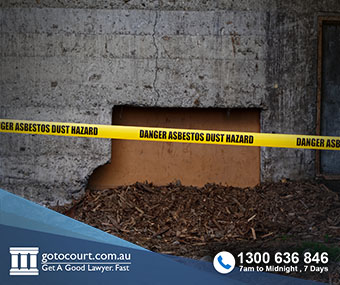Call our lawyers
now
or,
have our lawyers
call you
Challenging a Will in the NT
Updated on Jan 09, 2023 • 5 min read • 194 views • Copy Link
Challenging a Will in the NT
If you are thinking of challenging a will in the NT, it may be possible to do so on a number of grounds. For example, you can challenge a will that was not validly made because the legal requirements set out in the Wills Act were not satisfied (eg because the will-maker did not have testamentary capacity to make the will). You can also seek rectification orders from the Supreme Court if the will has an error or does not give effect to the will-maker’s intentions.
Alternatively, if you are related to the will-maker but not named in their will as a beneficiary, you may be able to apply to the Supreme Court for a family provision order under the Family Provision Act (1970), in which case you will be entitled to a part of the will-maker’s estate.
Grounds of validity for challenging a will
In order for a will to be valid, it must satisfy certain legal requirements. One of the major reasons why a will may not be valid is because the will-maker lacked testamentary capacity to make the will. Under the Wills Act 2000 (NT), any person can apply to the Supreme Court to have a will revoked or altered in whole or in part on the basis that the will-maker lacked testamentary capacity.
An application can be made while the testator is alive, but the leave of the Supreme Court is required to have the Will revoked. If, after the death of a testator, a person believes that the testator lacked capacity, they should speak to a solicitor about lodging a caveat with the Probate Registry prior to probate being granted.
Read More: How to Obtain a Copy of a Will (NT)
Rectifying a will
Under the Wills Act 2000 (NT), any person can seek the rectification of a will on the basis that it has a clerical error, or it does not give effect to the will-makers’ instructions. An application for such an order must be made within 6 months of the will-makers’ death. The Supreme Court can extend this period by a further 6 months, but not if final distributions under the will have already been made.
Common law grounds
Challenging a will in the Northern Territory might be possible on the basis of one of a number of common law grounds, including that the will-maker was subjected to undue influence or pressure in preparing the will, or the will was forged or written by a person other than the will-maker. If the will is revoked on one of these grounds and the will-maker did not have another will, then the will-maker will be an ‘intestate’. This means the will-maker’s estate will be distributed amongst his or her relatives based on a particular statutory formula.
This should be kept in mind when seeking an order to have a will revoked, because you may not ultimately benefit from the revocation of a will. To avoid revoking a will, you could mediate the dispute with the executor of the will, in which case you may be able to reach a settlement.
Family provision orders
Generally speaking, it is up to the will-maker to decide who is named in their will as a beneficiary. However, in certain circumstances, a relative of the will-maker who is not named as a beneficiary under the will (or not adequately provided for in the will) can apply to the Supreme Court for an order requiring the executor of the will-maker’s estate to set aside part of the estate for their maintenance. These orders are called ‘family provision orders’ and are issued under the Family Provision Act.
An application for a family provision order must generally be made within 12 months of the executor of the will-makers’ estate being granted probate to administer their estate, or of an administration order being made. Only certain people can apply for a family provision order, including a spouse, former spouse, child or parent of the will-maker. However, a former spouse can only apply for a family provision order if the will-maker maintained them just before their death.
Relevant matters in a family provision claim
The Supreme Court has a broad discretion to make an order for family provision, and adopts a two-stage process when determining whether an order should be made. The first step is the ‘jurisdictional question’ which is the question of whether the person is eligible to make a claim under the Act. The second step is the ‘adequacy question’ and is where the Court determines if, relative to the size of the estate and the other competing claims against the estate, the claimant has been left with inadequate provision.
Only if the claimant has been left with inadequate provision will the Court make an order for further provision.
Resources

Affordable Lawyers
Our Go To Court Lawyers will assist you in all areas of law. We specialise in providing legal advice urgently – at the time when you need it most. If you need a lawyer right now, today, we can help you – no matter where you are in Australia.How It Works







1. You speak directly to a lawyer
When you call the Go To Court Legal Hotline, you will be connected directly to a lawyer, every time.


2. Get your legal situation assessed
We determine the best way forward in your legal matter, free of charge. If you want to go ahead and book a face-to-face appointment, we will connect you with a specialist in your local area.


3. We arrange everything as needed
If you want to go ahead and book a fact-to-face appointment, we will connect you with a specialist in your local area no matter where you are and even at very short notice.


















